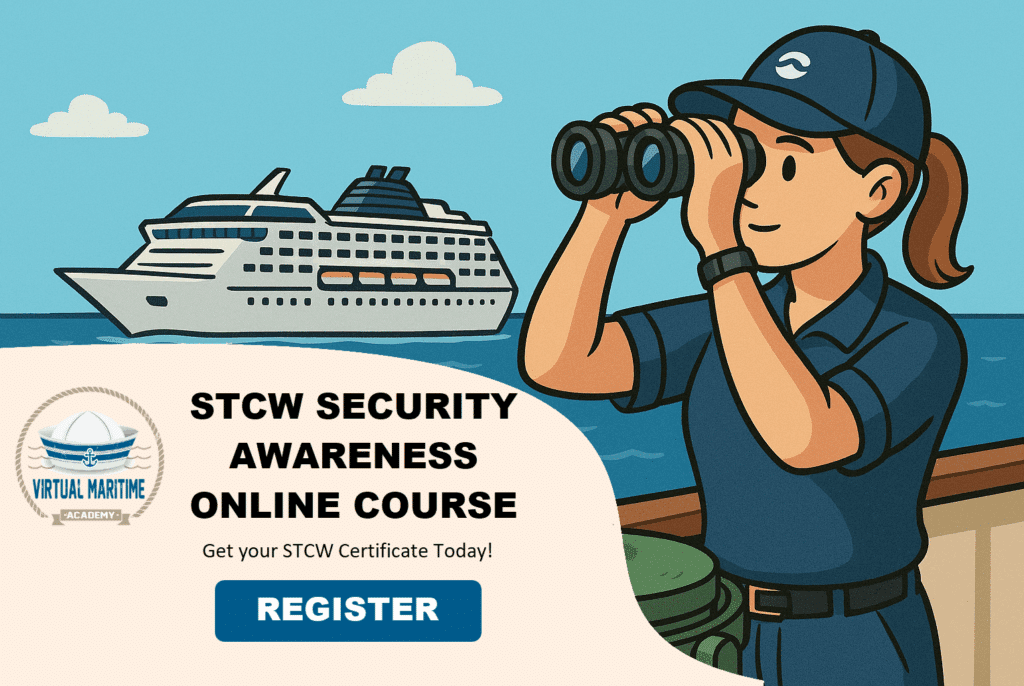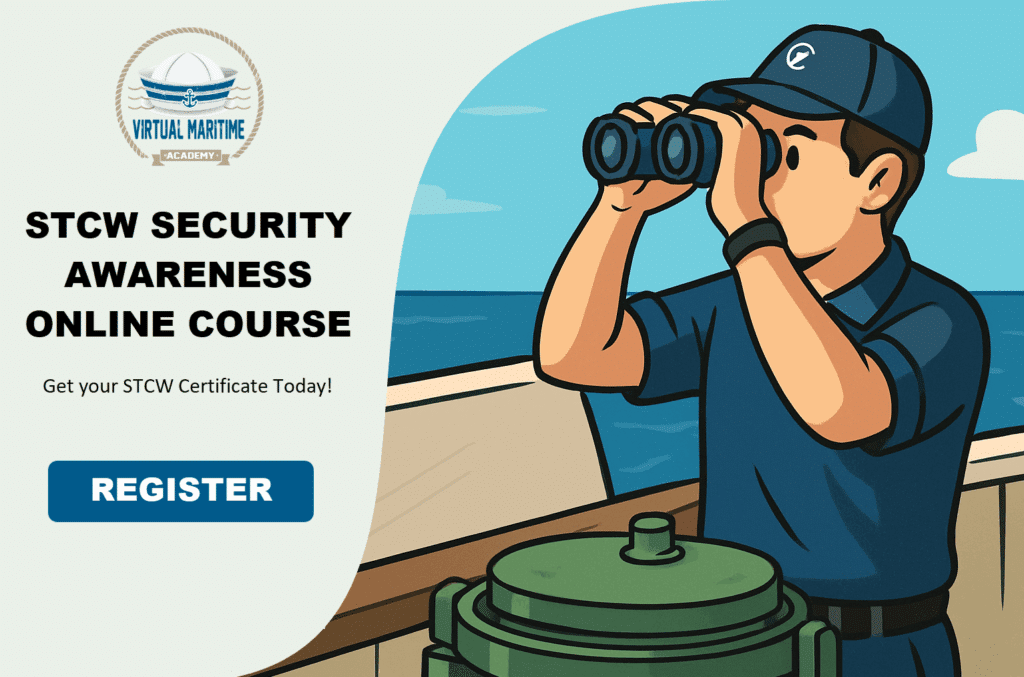In the maritime industry, safety and security are paramount. While many personnel are tasked with direct security responsibilities, there exists a crucial segment known as Vessel Personnel Without Security Responsibilities (VPWOSR). This article delves into the significance of VPWOSR Training, designed specifically for individuals in maritime roles that do not have direct security duties. Understanding this training is essential for enhancing overall safety and compliance within shipping operations. From grasping the core principles to implementing this training effectively, we will explore how VPWOSR Training helps equip non-security personnel with the knowledge and skills necessary to maintain safe and secure maritime environments.
Learn more about our Courses here!

Key Takeaways
- VPWOSR training is essential for all maritime personnel, even those without specific security duties.
- Understanding VPWOSR helps enhance overall vessel safety and security culture.
- The curriculum includes core components that address risk awareness and emergency response.
- Implementing VPWOSR training improves compliance with maritime regulations and best practices.
- Effective VPWOSR training fosters a sense of responsibility among all crew members, promoting teamwork and vigilance.
Understanding VPWOSR Training: An Overview
Vessel Personnel Without Security Responsibilities (VPWOSR) Training is crucial for crew members who do not hold specific security duties on board maritime vessels but still play a vital role in maintaining a safe and secure environment at sea. This training equips participants with essential knowledge about the security measures and protocols that are in place, ensuring they understand their role in the broader security framework of the vessel. VPWOSR Training focuses on raising awareness regarding potential threats and promotes vigilance among all personnel, regardless of their official security tasks. It covers fundamental topics such as recognizing suspicious behavior, responding effectively to security incidents, and understanding the importance of teamwork in emergency situations. By empowering every member of the crew with this knowledge, VPWOSR Training contributes to the overall safety and security of the maritime environment, making it a valuable resource for organizations seeking to enhance their operational effectiveness.
The Importance of VPWOSR for Non-Security Personnel
In today’s increasingly complex maritime environment, understanding the significance of Vessel Personnel Without Security Responsibilities (VPWOSR) training is crucial, even for roles that do not have direct security duties. While many associate security training with those in high-risk positions, all personnel aboard a vessel play a vital role in maintaining a safe and secure operational environment. VPWOSR training equips non-security personnel with the knowledge and skills necessary to identify and respond appropriately to potential security threats. This proactive approach ensures that every crew member understands their role in safeguarding the vessel, thereby minimizing risks associated with maritime operations. By participating in VPWOSR training, employees from all departments foster a culture of security awareness and contribute to the overall safety of the crew, passengers, and cargo. In essence, VPWOSR training is not just beneficial; it is an essential component for every role without security duties, promoting collaboration and enhancing response strategies across the entire vessel.
‘An investment in knowledge always pays the best interest.’ – Benjamin Franklin
Learn more about our Courses here!
Core Components of the VPWOSR Curriculum
The Vessel Personnel Without Security Responsibilities (VPWOSR) Training: For Every Role Without Security Duties is essential for maritime professionals who do not have direct security roles but still play critical parts in vessel operations. This training ensures that all personnel are familiar with safety protocols and understand the broader context of maritime security. The core components of the VPWOSR curriculum include an overview of international maritime regulations, operational safety practices, emergency response procedures, and the identification of security threats. Participants learn how their roles contribute to the safety and security of the vessel, fostering a culture of awareness and preparedness among all crew members. By equipping every role without security duties with the knowledge and skills needed to support security objectives, VPWOSR training enhances overall vessel integrity and safety.
Implementing VPWOSR Training in Maritime Operations
Implementing Vessel Personnel Without Security Responsibilities (VPWOSR) Training in maritime operations is essential for optimizing the performance and safety of all personnel who do not have designated security duties. This training program equips maritime workers with knowledge and skills focused on maintaining a secure environment while fulfilling their primary job roles. Understanding the basics of security awareness, emergency protocols, and the importance of reporting suspicious activities contributes to a comprehensive maritime security culture. By integrating VPWOSR Training into daily operations, organizations can foster a sense of responsibility among all crew members, ensuring that every employee remains vigilant and proactive, regardless of whether their primary role involves security duties. This not only enhances the overall safety of maritime operations but also promotes a cohesive teamwork ethos, empowering personnel to contribute to safeguarding vital assets at sea.
About Virtual Maritime Academy
Virtual Maritime Academy is a leading provider of online maritime education and training, offering a wide range of courses designed to meet the needs of the global maritime industry. With a commitment to quality and innovation, Virtual Maritime Academy is dedicated to preparing seafarers and maritime professionals for success in their careers. Now a DNV Certified Maritime Training Provider, the academy upholds the highest standards of excellence in training and education.











